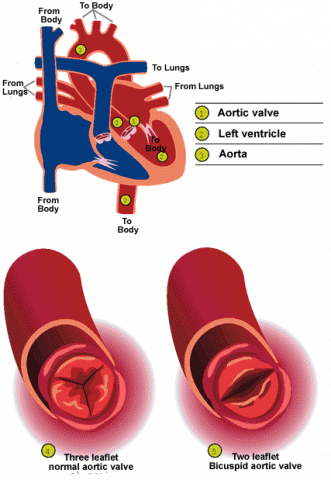A common bicuspid valve can be difficult to diagnose and treat. Patients are often advised to wait to receive proper treatment until a more serious problem develops or when they begin to experience pain.
Bicuspid valves occur in one or both kidneys. Usually, when the flow of urine into the bladder is blocked in the urethra, it causes severe discomfort. When the urethra is clogged with urine, urine cannot drain back into the bladder.
If a patient experiences severe pain when urinating, their doctors may think they have an infection or other kidney disease. These tests usually show no abnormalities, and if found, your doctor will recommend antibiotics to treat the infection. However, they will not prescribe pain relievers or other medications that can help control the discomfort they are experiencing.
Bivalves are not needed for kidney health. They are not important for the flow of urine through the kidneys, therefore the body naturally eliminates urine as soon as it leaves the body. If a person's kidneys are not functioning properly, the body naturally excretes urine as a waste product.
Bicuspid valves usually result from a blockage in the urethra, which causes the bladder to close, preventing urine from flowing out of the body. In addition to symptoms that mimic kidney disease, patients with kidney disease often complain of persistent or recurring urge to urinate.
It is important for a doctor to detect the bicuspid valve early. Many patients wait too long to get the proper treatment to relieve their pain. The longer that the kidney disease or other condition is left untreated, the more likely the patient will suffer further damage to the kidneys.
Because a urinary tract infection is often accompanied by a severe pain sensation, it is common for patients to have a lot of trouble getting to the bathroom. This pain can become too much to bear and can even result in the patient having a need to urinate outside of the body.
Other urinary tract infections such as kidney stones and bladder infections are usually treated with antibiotics. However, many patients that are dealing with severe symptoms do not respond well to these treatments. Most doctors are aware of what they can prescribe for these patients, but many do not know how to treat the pain associated with them.

Pain medications are available that you can take when you have severe symptoms
However, this can be uncomfortable or make things worse. Also, if you are using pain medication to relieve the symptoms, you may feel that your symptoms are getting worse, which may be a sign that your kidney disease is causing your symptoms.
Many patients try to treat their pain using only Bicuspid exercise. However, it is important to remember that this method does not address the main cause of the problem. Your doctor will still recommend a more effective way to solve your problem.
You will be able to find out how to cure your symptoms naturally by treating the Bicuspid valve. by eating the right foods and doing exercises. You can also find a variety of natural cures that are helpful.
Another great way to help ease the pain associated with your Bicuspid valve is to drink plenty of water. Water will increase the blood flow to your kidneys, helping to flush out toxins and help your kidneys function properly.
A diet rich in fiber is another effective way to treat your Bicuspid valve. The fiber content of these foods helps to cleanse the urine and keep it from becoming too hard. This helps to reduce your pain and make it easier for you to pass the urine without causing any pain. Eating more fruits and vegetables is also an effective way to treat the pain caused by your condition.
Bicuspid valve problems are caused when your kidneys do not work correctly. When you make a change to your diet and get some exercise, it will help you get relief from your symptoms.
Bicuspid valves are a condition that is very easy to treat. If you know how to treat your symptoms, you will be able to deal with them effectively.